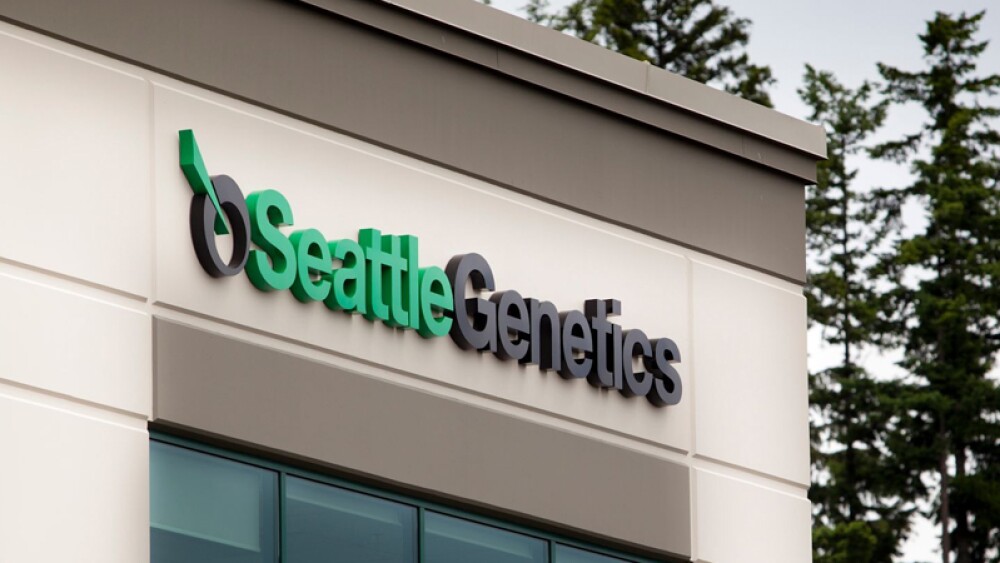January 24, 2017
By Mark Terry, BioSpace.com Breaking News Staff
Seattle Genetics , headquartered in Bothell, Washington, said it plans to hire 200 people this year. Last year the company brought on about 100 more staffers.
In October 2016, the company announced plans to expand its headquarters with 100,000 square feet of additional space, including hiring and expanding operations.
In July 2016, Seattle Genetics, along with Takeda Pharmaceutical Company in Osaka, Japan, announced final data for its Adcetris (brentuximab vedotin) monotherapy Phase II clinical trial. It showed positive results in patients with relapsed or refractory classical Hodgkin lymphoma. The U.S. Food and Drug Administration (FDA) approved Aceetris to treat classical Hodgkin lymphoma after failure of autologous hematopoietic stem cell transplantation, for the treatment of classical Hodgkin lymphoma patients at high risk of relapse or progression, and accelerated approval in patients with systemic anaplastic large cell lymphoma (sALCL) after failure of at least one prior multi-agent chemotherapy regimen.
The drug is being evaluated in more than 70 ongoing clinical trials.
The company’s chief executive officer, Clay Siegall, met recently with local investment analysts at The Metropolitan Grill in Seattle. He indicated that over the coming years Seattle Genetics plans to launch four or five new drugs.
Despite the many positive signs, it hasn’t been completely smooth sailing. In late December 2016, the FDA placed a clinical hold or partial clinical hold on several early stage trials of vadastuximab talirine (SGN-CD33A) in acute myeloid leukemia (AML). The holds were due to liver toxicity in patients who were treated with the drug and received allogeneic stem cell transplant either before or after treatment. Six patients were identified with liver toxicity (hepatotoxicity), as well as several cases of veno-occlusive disease. Four patients died.
At the Metropolitan Grill, Siegall said, “I have no problem whatsoever with the FDA” placing clinical holds on the trials. Patient safety is the big concern, he noted, but Wall Street’s reaction was a problem.
Shares dropped about 15 percent at the news, plunging from $61.85 to $52.36. have partially recovered, currently trading at $58.52.
In addition to adding workers and expanding its headquarters, the company is considering building its own manufacturing facility. At the moment, drug manufacturing is being contracted out. Siegall said the company didn’t have a geographic location in mind yet. “A lot of states offer a lot of assistance, which you don’t see here,” he said, noting that a Washington state tax credit for research and development equipment was eliminated several years ago. “To me, they’re trying to save a few bucks,” which increased the risk of losing biotech and other advanced industrial jobs.
When asked about current arguments at the government level about drug pricing, Siegall said the industry needs to set fair pricing guidelines, “so that we don’t have charlatans who are not innovating and not making great drugs and are buying up 50-year-old drugs … and jacking up the price by 3,000 percent and trying to say that that’s fair. That is completely unfair.”





